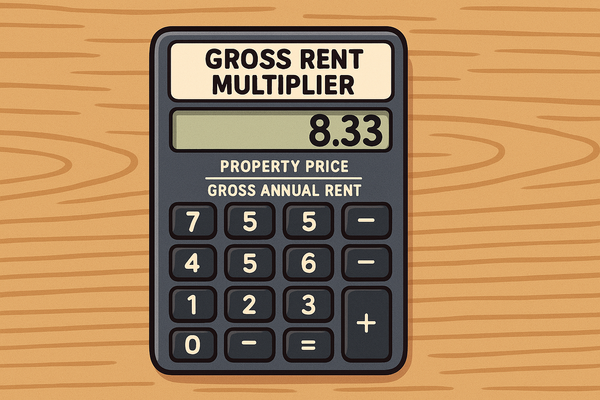Missouri Squatters Rights Guide: Understanding Adverse Possession Laws
Adverse possession in Missouri is governed by Missouri Revised Statutes § 516.010, requiring 10 years of continuous possession

Introduction to Squatters' Rights in Missouri
Here are four key takeaways from the article regarding squatters rights laws in Missouri. To learn about the laws in more detail, including real-life squatter stories in Missouri, keep reading below.
- In Missouri, squatters are individuals who occupy property without legal ownership or permission, while trespassers are those who simply enter without authorization
- Adverse possession in Missouri is governed by Missouri Revised Statutes § 516.010, requiring 10 years of continuous possession
- Property owners need to understand these laws to protect their investments and prevent potential loss through adverse possession
- Historically, adverse possession laws were designed to ensure productive use of land and resolve unclear property boundaries
Squatter Snippet: Real Case from Missouri
The notorious "Serial Squatters" of Missouri demonstrate why property owners need to understand squatters rights. Between 2009 and 2019, Barbarita Jimmerson and her son Jordan Harris executed a decade-long property scheme across St. Louis. They would identify properties for sale, present themselves as serious buyers, and negotiate to take possession before closing.
In one case, they convinced Jeff Kaufman, a house flipper, to let them move into his Hazelwood property before finalizing the $279,000 purchase. After paying just $500 for a temporary lease, the promised closing never happened, and Kaufman received no further payments.
This scheme was repeated 16 times before they faced felony charges in 2020, leaving a trail of financial devastation for property owners across Missouri.
Key Timeline: Statutory Period in Missouri
- Required occupation period: 10 years in Missouri
- Continuous possession requirement: Occupation must be without significant interruptions
- Comparison with neighboring states:
- Illinois: 20 years
- Kansas: 15 years
- Arkansas: 7 years
- Timeline exceptions:
- Legal disability (being under 18 or mentally incapacitated): 3 years after disability is lifted and up to 21 years to challenge claims
CHART: Adverse Possession Timeline Comparison
| State | Required Years | Special Conditions |
|---|---|---|
| Missouri | 10 years | No tax payment requirement |
| Illinois | 20 years | Color of title reduces to 7 years |
| Kansas | 15 years | Payment of taxes required |
| Arkansas | 7 years | Color of title and tax payment required |
Quick Guide for Property Owners
Did you know that Missouri is one of the few states that doesn't require squatters to pay property taxes to strengthen their adverse possession claim? This makes Missouri's adverse possession laws somewhat more accessible to squatters compared to neighboring states with stricter requirements.
The Missouri Supreme Court has consistently upheld these standards, creating a legal foundation where vigilance by property owners is absolutely essential.
A 2020 case in St. Louis County resulted in a property owner losing a portion of their land to a neighbor who had maintained and used it for over a decade—all because they failed to monitor their property boundaries.
- Know your timeline: Squatters can claim rights after 10 years of continuous occupation
- Documentation matters: Keep property records, tax receipts, and inspection logs
- Regular monitoring required: Vacant properties are most vulnerable
- Legal obligation: Self-help eviction methods are illegal in Missouri
- Act quickly: The longer squatters remain, the stronger their potential claim
- Proper notices: Follow Missouri's legal procedures when removing unauthorized occupants
Prevention: Protecting Your Property
Missouri courts place significant emphasis on visible evidence of property monitoring when evaluating adverse possession cases. According to data from the Missouri Association of Realtors, vacant residential properties are particularly vulnerable, with most successful adverse possession claims involving properties left unattended for 5+ years.
Recent Missouri court decisions have highlighted that regular documented visits, even quarterly, can significantly strengthen an owner's defense against adverse possession. The Missouri Supreme Court has specifically noted that visible security measures serve as strong evidence against the "open and notorious" requirement for adverse possession.
- Regular inspections:
- Visit property at least quarterly
- Document each visit with date-stamped photos
- Effective security measures:
- Secure all entry points with commercial-grade locks
- Consider alarm systems with remote monitoring
- Install motion-activated lighting around the property
- Clear signage:
- Post "No Trespassing" signs visibly along property boundaries
- Mark property boundaries clearly with fencing where possible
- Property management options:
- Hire professional management for vacant properties
- Consider short-term rental options for long-term vacancies
- Documentation practices:
- Keep tax payment records organized by year
- Maintain utility connections even at minimal service levels
- Take dated photographs of the property quarterly
CHART: Property Risk Assessment Matrix
| Property Type | Risk Level | Recommended Prevention | Estimated Cost |
|---|---|---|---|
| Vacant Land | High | Fencing, signage, quarterly visits | $500-$3,000 |
| Abandoned Building | Very High | Security system, property management, monthly visits | $1,500-$5,000 |
| Seasonal Property | Medium | Timer lights, security system, neighbor monitoring | $500-$2,000 |
| Investment Property | Medium | Professional property management, tenant verification | $1,000-$3,000 |
Removing Squatters: Step-by-Step Process
Missouri law requires property owners to follow formal eviction procedures when dealing with squatters, as outlined in Missouri Revised Statutes § 534.030. Unlike some neighboring states, Missouri does not have an expedited process specifically for squatters, requiring the same procedures used for tenant evictions.
Under Missouri landlord-tenant law, self-help eviction tactics are strictly prohibited and can result in penalties up to three times the actual damages suffered by the squatter (MO Rev Stat § 441.233). Missouri courts generally require clear evidence of ownership and unauthorized occupation, with the burden of proof resting entirely on the property owner.
- Document the situation:
- Take photos/video of occupation
- Gather property deed and tax records
- Issue proper written notice to vacate (not required for "possession only" cases)
- File appropriate legal complaint:
- Unlawful detainer action in Missouri Circuit Court
- Include all property ownership documentation
- Attend court hearing
- If successful, obtain writ of restitution
- Sheriff enforces removal, not property owner
- What NOT to do:
- Do not change locks yourself
- Do not shut off utilities
- Do not remove squatter's belongings
- Do not threaten or intimidate
- Do not use physical force
- Timeline expectations:
- Notice period: Not required for "possession only" cases
- Court processing: 2-6 weeks
- Eviction enforcement: 3-10 days after judgment
CHART: Eviction Process Timeline
Missouri's eviction timeline is governed by specific statutory requirements defined in Missouri Revised Statutes Chapter 534, which details unlawful detainer proceedings. According to data from Missouri courts, the average processing time for eviction cases varies significantly by county—ranging from 3 weeks in rural areas to 8+ weeks in St. Louis and Kansas City. Unlike neighboring Illinois, Missouri does not offer an expedited "emergency eviction" option for squatter situations, meaning property owners must follow the standard timeline regardless of circumstances.
[Discovery of Squatter] → [Documentation: 1-2 days] → [No Notice Required for "Possession Only"] →
[Court Filing: 1 day] → [Waiting for Hearing: 2-6 weeks] → [Court Hearing: 1 day] →
[If successful, Wait for Writ: 2-5 days] → [Sheriff Enforcement: 3-10 days] → [Property Returned]
Total estimated timeline: 3-10 weeks
Legal Requirements for Adverse Possession
Missouri courts interpret the "OCEAN" criteria (Open, Continuous, Exclusive, Adverse, Notorious) through the lens of Missouri's specific property laws and case precedents. The Missouri Supreme Court has established that the burden of proof in adverse possession cases lies with the person claiming ownership through adverse possession, requiring "clear and convincing evidence" of all elements (Luttrell v. Stokes, 77 S.W.3d 745, 749 (Mo. App. 2002)).
Missouri is somewhat unique in not requiring tax payment or color of title to establish adverse possession, focusing instead on the actual use and occupation of the property.
- Hostile Claim
- In Missouri, "hostile" simply means without the owner's permission
- Missouri follows the "objective" standard of hostility
- Common misunderstanding: "Hostile" doesn't require confrontation or ill will
- Actual Possession
- Physical occupation of the property is required
- Missouri courts look for evidence of maintenance, improvements
- Must be appropriate to the type of property (e.g., residential, agricultural)
- Open and Notorious Possession
- Must be visible to anyone who would observe the property
- Missouri courts require evidence that neighbors would recognize the squatter as appearing to be the owner
- Documentation can include witness statements from neighbors
- Exclusive Possession
- Squatter must possess the property exclusively, not sharing with the true owner
- Must demonstrate control over the property
- Evidence includes preventing others from using the property
- Continuous Possession
- Full 10-year period required by Missouri law
- Short absences (vacations, hospital stays) don't break continuity
- Extended absences can reset the 10-year clock
CHART: Adverse Possession Requirements Matrix
| Requirement | Required in Missouri? | Evidence Courts Accept | Common Pitfalls |
|---|---|---|---|
| Hostile Claim | Yes | No permission documentation, no lease | Assuming hostility requires conflict |
| Actual Possession | Yes | Improvements, maintenance records, utility bills | Occasional use only |
| Open & Notorious | Yes | Visible occupation, neighbor testimony | Hidden or secretive occupation |
| Exclusive | Yes | Control of property, exclusion of others | Sharing property with true owner |
| Continuous | Yes | 10 years without significant gaps | Extended absences that break continuity |
Frequently Asked Questions
- "Can I remove squatters myself in Missouri?"
- No, self-help eviction is illegal in Missouri
- Must follow legal eviction process through the courts
- "Do squatters have to pay property taxes in Missouri?"
- No, Missouri doesn't require tax payment for adverse possession
- However, payment can strengthen an adverse possession claim
- "What's the difference between a squatter and a trespasser in Missouri?"
- Trespassers: Short-term unauthorized presence (criminal offense)
- Squatters: Ongoing occupation with potential adverse possession claim (civil matter)
- "Who should I contact first in Missouri - police or sheriff?"
- For immediate safety concerns: Police
- For eviction enforcement: Sheriff's department
- "Can squatters claim abandoned property in Missouri?"
- Yes, if all adverse possession requirements are met for 10 years
- Abandonment actually strengthens their adverse possession claim
- "How quickly can I evict a squatter in Missouri?"
- Typical timeline: 3-10 weeks
- Factors affecting timeline: court backlog, evidence quality, appeals
CHART: Decision Tree for Property Owners
Missouri law distinguishes between criminal trespass (Missouri Revised Statutes § 569.140) and civil squatting situations based primarily on the duration and nature of the unauthorized occupation.
According to guidance from the Missouri Attorney General's office, police can immediately remove criminal trespassers under certain circumstances, but once an individual establishes any form of occupancy, the matter typically requires civil court proceedings.
Missouri law enforcement agencies generally follow a protocol of determining whether the situation involves recent entry (criminal trespass) or established occupation (requiring civil eviction).
Discovered Someone on Your Property
├── Emergency/Dangerous Situation? → Yes → Call Police
│ └── No ↓
├── Recent Entry (Less than 24 hours)? → Yes → Call Police (Trespasser)
│ └── No ↓
├── Evidence of Established Occupation? → Yes → Legal Eviction Process Required
│ └── No ↓
└── Uncertain Situation → Consult Attorney Before Taking Action
Recent Legislative Changes in Missouri
Missouri's legislature has been active in refining property rights laws in recent years, with several significant changes affecting how property owners can address squatter situations.
House Bill 429, passed in 2019, amended provisions relating to property disputes, though it stopped short of creating an expedited removal process specifically for squatters.
More recently, House Bill 236, introduced in the 2024 legislative session, proposed strengthening criminal trespass laws to provide law enforcement with greater authority to remove unauthorized occupants before they can establish residency claims.
- Recently Passed Laws:
- House Bill 429: Passed in 2019, this law amended provisions relating to eviction procedures
- Impact on property owners: Streamlined documentation requirements for proving ownership
- Effective date: August 28, 2019
- Pending Legislation:
- House Bill 236: Currently in committee
- Proposed changes: Would strengthen criminal trespass laws relating to vacant properties
- Expected vote/implementation: 2024 legislative session
- Legislative Trends:
- Missouri is moving toward stronger protections for property owners
- Similar to national trends focusing on expediting removal of unauthorized occupants
State-Specific Considerations
- Color of Title in Missouri:
- Definition: Document that appears to give ownership but is legally defective
- Impact on statutory period: No reduction (still 10 years)
- While not required, having color of title can strengthen a claim
- Burden of proof requirements:
- "Clear and convincing evidence" standard in Missouri courts
- Higher standard than the usual civil "preponderance of evidence"
- Special protections for vulnerable property owners:
- Disability clause: Owners under 18 or mentally incapacitated have up to 21 years to challenge claims
- Additional 3 years after disability is lifted
- How Missouri differs from neighboring states:
- No tax payment requirement (unlike Kansas)
- Longer statutory period than Arkansas (10 vs. 7 years)
- Shorter period than Illinois (10 vs. 20 years)
CHART: Missouri vs. Neighboring States Comparison
| Factor | Missouri | Illinois | Kansas | Arkansas |
|---|---|---|---|---|
| Statutory Period | 10 years | 20 years | 15 years | 7 years |
| Color of Title Impact | No reduction | Reduces to 7 years | No reduction | Required |
| Tax Payment Required | No | No | Yes | Yes |
| Special Conditions | Disability clause | Disability protection | Good faith required | Color of title required |
| Strictness Rating | 3/5 | 4/5 | 4/5 | 5/5 |
Advanced Legal Process
- Court proceedings typically take place in the Circuit Court in the county where the property is located
- Evidence requirements include proof of ownership, documentation of unauthorized occupation
- Potential outcomes include complete eviction, partial property rights granted to adverse possessor
- For legally incompetent individuals, Missouri provides special protections extending the challenge period
Real-World Examples
- The "Serial Squatters" case involving Barbarita Jimmerson and Jordan Harris in St. Louis
- 2018 case where a property owner lost boundary land to a neighbor who had maintained it for 12 years
- Hannibal City Council's 2024 efforts to address increasing squatter problems
Resources
- Current Missouri Squatters Rights Laws:
- Missouri Revised Statutes, Chapter 516
- Last updated: 2024
- Recent/Pending Legislation:
- Missouri House Bill 236
- Bill status: In committee
Legal Disclaimer
DISCLAIMER: The information provided in this guide is for general informational purposes only and should not be construed as legal advice on any subject matter. The content contained herein does not establish an attorney-client relationship.
This guide about Missouri squatters' rights and adverse possession laws is intended to provide general information and should not be relied upon as legal advice. Laws and regulations regarding property rights, adverse possession, and eviction procedures vary by jurisdiction and may change over time. The information presented here may not reflect the most current legal developments or address your specific situation.
No reader should act or refrain from acting based on information in this guide without first seeking professional legal advice. Property owners dealing with squatters should consult with a qualified attorney licensed to practice in their jurisdiction for advice tailored to their particular circumstances.
The authors, publishers, and distributors of this guide expressly disclaim all liability in respect to actions taken or not taken based on any or all of the contents of this document. They shall not be responsible for any errors or omissions in this information or any consequences arising from its use.
This guide is provided "as is" without warranty of any kind, either express or implied, including but not limited to implied warranties of merchantability, fitness for a particular purpose, or non-infringement.
Copyright © 2025 Property Management Resources. All rights reserved.





